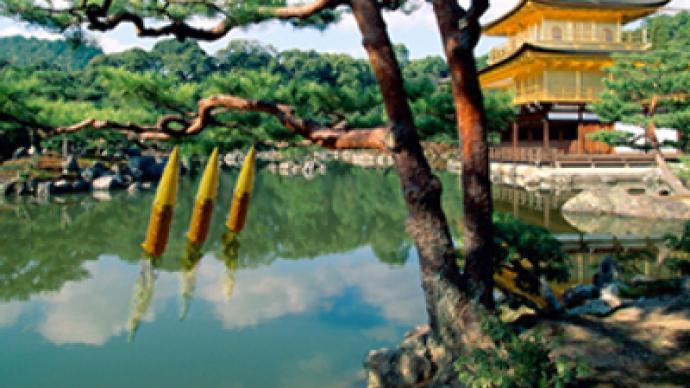Japan drops a bomb by suggesting US nukes may be permissible

Japanese Foreign Minister Katsuya Okada said his country is not ruling out the possibility of allowing nuclear-armed US warships to enter its waters under “exceptional circumstances”.
“If Japan’s security cannot be protected without temporary… calls by US vessels carrying nuclear weapons, the government would have to make a decision, even if it has political consequences,” the Japanese foreign minister said during a parliamentary committee meeting, Itar-Tass reported.
Since the bombing of Hiroshima and Nagasaki in the final moments of World War II, Japan has advocated a strong anti-nuclear weapon policy. Moreover, its Constitution forbids the development of offensive military forces. The announcement contradicts Japan’s so-called Three Non-Nuclear Principles, which rules out the production, possession, or introduction of nuclear weapons, that was declared back in 1967.
Okada said that in case of emergency circumstances, exceptions to the rules may be made.
“Should we follow those principles till the end, even when the nation’s security is under threat,” the Japanese foreign minister asked, “Or should we make some exceptions?”
Okada concluded by saying “the government cannot tie its hands in the future.”
At the same time, the minister stressed that Japan is not going to abolish altogether the present policy that bans the import or transit of nuclear weapons into the country, encouraging instead active discussions of this issue in the parliament.
The nuclear question has come to the forefront of debate in Japan in light of an ongoing scandal that suggests the non-nuclear principles were violated a long time ago.
Following the discovery of previously undisclosed documents, government officials admitted that in 1960 a secret pact was reached between the United States and Japan that allowed nuclear-armed US warships to make temporary stops in Japan without prior consultations with Tokyo.
In order to relieve public anxiety, the Foreign Minister and Prime Minister Yukio Hatoyama reassured the Japanese public that American nuclear weapons will never be allowed into the country under any circumstances.
Yet the debate continues as to whether US warships, carrying nuclear arms, should be given an exemption to pass through Japanese territorial waters, while others insist that the government adhere to the adopted non-nuclear principles without any exceptions.
Japan, which is the only country to have suffered from a nuclear attack, lost tens of thousands of people when the United States made the fatal decision near the end of World War II to drop atomic bombs on Hiroshima (August 6, 1945) and Nagasaki (August 9, 1945).
Recently, the bishops of Hiroshima and Nagasaki called on the United States, Japan and other countries to work towards the elimination of nuclear weapons.












